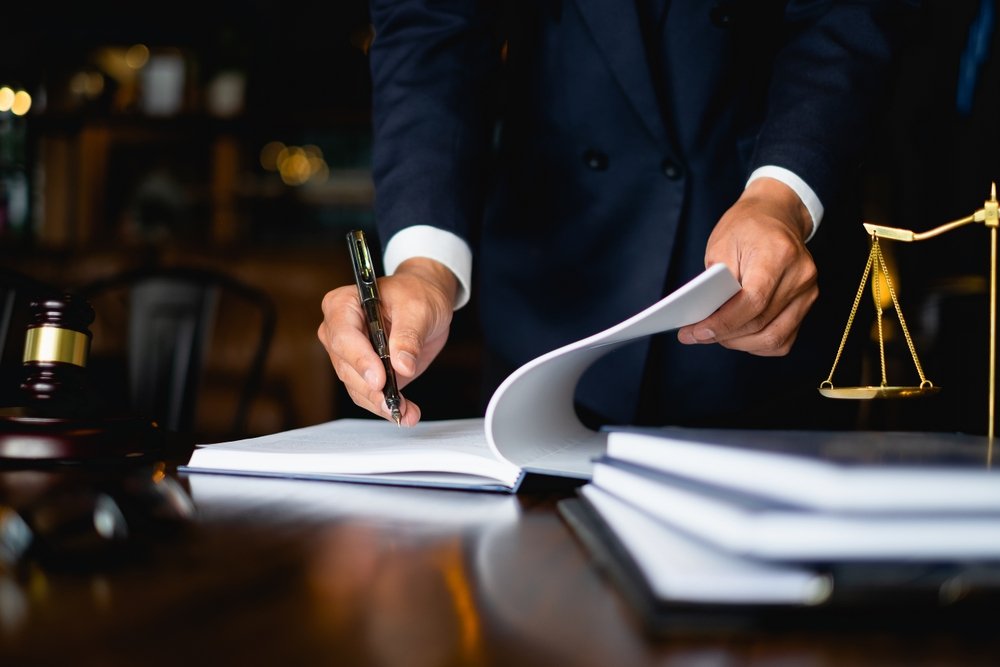Securities fraud represents a significant threat to investors, often leading to severe financial repercussions and erosion of trust in the financial markets’ integrity. The journey to rectify such deceit goes beyond merely acknowledging the fraud; it involves understanding the intricate legal processes and potential ramifications. Navigating these complexities can be daunting, but the right approach can help you reclaim what’s rightfully yours. Engaging a professional such as a Washington securities fraud lawyer can provide critical guidance in maneuvering the legal maze and ensuring your case is handled with the attention it deserves.
This comprehensive guide provides insight into the critical aspects of filing a securities fraud claim, offering you the tools needed to protect your interests and achieve justice.
What is Securities Fraud?
Securities fraud involves misleading or deceptive practices in the stock and commodities markets, leading investors astray with false or manipulated information. This type of fraud can manifest in various forms, such as insider trading, Ponzi schemes, or disseminating false financial statements. According to the U.S. Securities and Exchange Commission (SEC), these practices undermine investor confidence and disrupt market integrity. The legal implications of securities fraud are far-reaching, often resulting in civil and criminal charges for the offenders. In recent years, high-profile cases involving major corporate scandals have highlighted the need for stringent regulatory oversight and investor vigilance.
Recognizing the Warning Signs
The initial step in protecting against securities fraud is awareness of its warning signs. Investors should remain wary of unsolicited investment advice, particularly those offering unrealistically high returns with minimal risk. Fraudsters often craft their schemes to appear credible, using sophisticated language and official-looking documents. Instances of sudden changes in a company’s financial performance, opaque business practices, or irregularities in financial accounts can also serve as red flags. Educating oneself about these indicators can prevent significant losses and ensure informed decision-making.
Initial Steps to Take
If securities fraud is suspected, prompt actions are essential. Start by meticulously documenting all relevant correspondence, such as emails, contracts, and transaction records, which can serve as evidence if a claim proceeds to court. Reporting the suspected fraud to the SEC or similar regulatory bodies can halt further fraudulent activity and potentially aid other affected investors. Additionally, avoiding further financial transactions with the suspected fraudulent entity helps mitigate potential losses. These foundational steps set the stage for any subsequent legal action, providing a clear record of the transactions and potential breaches.
Collecting Necessary Evidence
A robust case requires comprehensive evidence gathering. Critical documents include communications with the entity involved, such as emails and messages promising returns, transaction receipts, and financial statements. Keeping a detailed record of all interactions and changes in account balances can significantly bolster the legitimacy of your claim. It is crucial to ensure that this evidence is well-organized and easily accessible for your legal representative, facilitating a smoother transition into the legal stages of claim filing.
Choosing the Right Legal Assistance
Navigating the complexities of securities fraud claims necessitates expert legal assistance. A specialized securities fraud attorney can offer strategic insights tailored to the nuances of your case. When selecting legal representation, consider their track record with similar cases and familiarity with securities regulations and courtroom procedures. Resources such as the Legal Information Institute provide valuable frameworks for understanding the specific legal expertise needed, ensuring you choose a competent advocate to represent your interests effectively.
Understanding the Legal Process
The journey through the legal system in a securities fraud case is multi-faceted, beginning with filing a formal complaint. This document outlines the allegations and the desired reparations. Following this initial step, the discovery phase involves exchanging pertinent information and documentation between both parties, shaping the case’s foundation. Legal representatives may attempt settlements to avoid lengthy court proceedings, although some cases escalate to trial. Awareness of recent developments and rulings in securities fraud cases can provide insight into potential legal strategies and outcomes, guiding your expectations through these complex legal pathways.
Preparing for Court Proceedings
Preparation is paramount when heading to court. This phase involves organizing all evidence and ensuring compliance with procedural requirements and deadlines, which are critical to maintaining the momentum of your case. Understanding the roles of different courtroom participants, from judges to expert witnesses, will clarify proceedings and help present a cohesive case. Practicing your testimony, reviewing all submitted evidence, and anticipating counterarguments will prepare you for the challenges of court appearances, enhancing your ability to communicate effectively under pressure.
Potential Outcomes & Appeals
Securities fraud cases typically conclude with one of several possible outcomes: financial restitution, punitive damages, or case dismissal. The outcome hinges on the evidence’s strength and the legal strategy’s effectiveness. If the case’s resolution is unsatisfactory, the appeals process provides an additional opportunity for judicative review, potentially reversing initial judgments or adjusting the awarded reparations. Understanding this phase and preparing for its contingencies ensures you grasp all available options for securing justice and compensation.
Staying Informed on Relevant Changes
The landscape of securities law is dynamic, with new regulations, rulings, and precedents emerging regularly. Staying informed about these developments is crucial for investors and legal practitioners, as they can significantly influence the approach to securities fraud claims. Regularly consulting resources, attending industry workshops, and networking with finance and law professionals can keep you ahead of the curve, ultimately contributing to more proactive and informed decisions in your investment activities.
By following these comprehensive guidelines and seeking professional assistance, individuals can effectively navigate and manage the intricacies of filing a securities fraud claim, thus ensuring greater protection for their investments and financial well-being.
